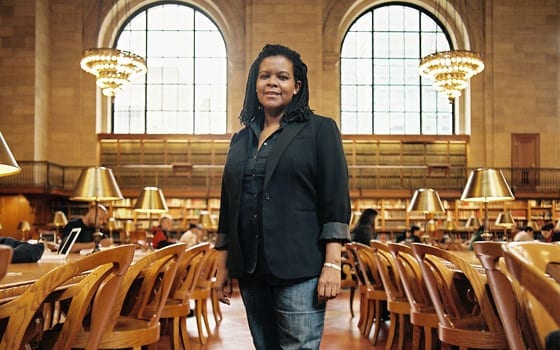
The John D. and Catherine T. MacArthur Foundation recently announced that Harvard historian Annette Gordon-Reed is one of 23 winners of the 2010 MacArthur Fellowship, popularly known as the “Genius Award.”
Gordon-Reed is best known for her books, “Thomas Jefferson and Sally Hemings: An American Controversy,” published in 1997, and “The Hemingses of Monticello: An American Family,” published in 2008. This scholarship investigates the 38-year affair between the president and his house slave, and the ways historians have dismissed evidence of this relationship.
Sally Hemings, a house slave in Monticello, was also the half-sister of Jefferson’s wife, Martha — Hemings’ parents were the white slave owner John Wayles and the black slave Betty Hemings. Before his presidency, Jefferson moved overseas to serve as the Minister to France, and Sally Hemings accompanied him to care for his young daughter. Hemings stayed with Jefferson in France for more than two years.
Since slavery was outlawed in France, Hemings had the legal right to petition for freedom, and to refuse going back to the United States. Instead, Hemings decided to return to her family — and to slavery — after Jefferson’s tenure as Minister expired. But she did not go for free — in exchange, the pregnant Hemings asked Jefferson to emancipate her children. He agreed.
But Gordon-Reed’s work also grapples with a scandal greater than the president’s affair. In an interview with the Banner, she explained that she “wanted to explore what I thought was a double-standard” in how historians read the evidence of white and black sources.
At the time, she said, Jefferson’s white family members denied the relationship — and by virtue of their social standing, were believed, even though their assertions were not backed with any proof. Hemings’ black family members, on the other hand, affirmed the affair, but were disregarded even though other historical evidence corroborated their testimony.
But it was the Jefferson family’s version of history that had previously prevailed.
If people are devalued in society, Gordon-Reed explained, they have to meet a higher standard to be believed, while the privileged are immediately believed. Her work confronts this assumption, bringing to light the voices of slaves who have otherwise been silenced by history. “I hope it will make people think about how people write and read history,” she said of her work.
A year after her 1997 book was published, DNA testing vindicated Gordon-Reed and the Hemings family — proving that Jefferson was indeed the father of Sally Hemings’ children.
Gordon-Reed said she “felt surprised” and “was shocked” when she received the phone call notifying her of the prize. But she couldn’t immediately share her excitement with her family — she had to keep the award a secret for two weeks until the MacArthur Foundation officially announced its winners. Gordon-Reed said it was difficult to keep the secret, so much so that it was difficult to concentrate on her work.
“But I’m not complaining!” she said.
The MacArthur Foundation says that its fellowships are “intended to encourage people of outstanding talent to pursue their own creative, intellectual, and professional inclinations . . . Although nominees are reviewed for their achievements, the fellowship is not a reward for past accomplishment, but rather an investment in a person’s originality, insight, and potential.”
Award winners receive an unrestricted $500,000 fellowship over five years to support these pursuits.
Harvard Law School Dean Martha Minow said of the award: “Professor Gordon-Reed’s remarkable work will be read for generations because of its originality, scrupulousness, rigor and imagination.”
The Texas-native was educated at Dartmouth and Harvard Law School. With her law degree, she worked in a legal firm and as counsel to the New York City Board of Correction, where she developed standards, policies, and legislation affecting inmates. She then turned to academia, working at New York Law School and Rutgers before coming to Harvard.
In addition to the MacArthur fellowship, Gordon-Reed also won the National Humanities Medal and the Pulitzer Prize and the National Book Award in nonfiction for her 2008 book. She is also co-author of “Vernon Can Read!: A Memoir,” written with Vernon Jordan Jr., and is editor of “Race on Trial: Law and Justice in American History.” She is now working on two books, “Jefferson: A Reader on Race,” and “Andrew Johnson.”
Gordon-Reed said she would use the funds to work on a second volume to the Hemings family biography, and would also give some of the money to her two children. “It’s all relatively new,” she said. “I haven’t really thought about it all the way through.”






